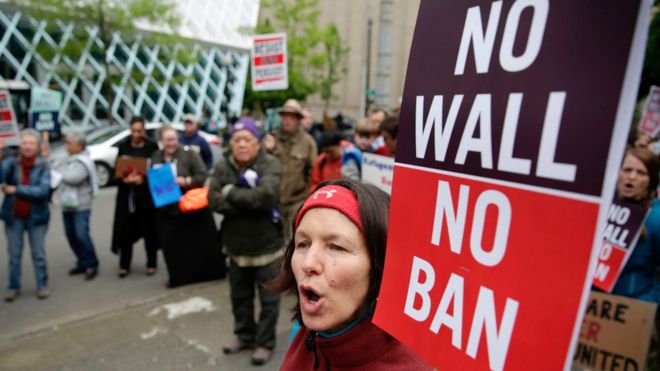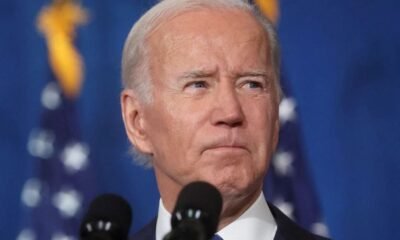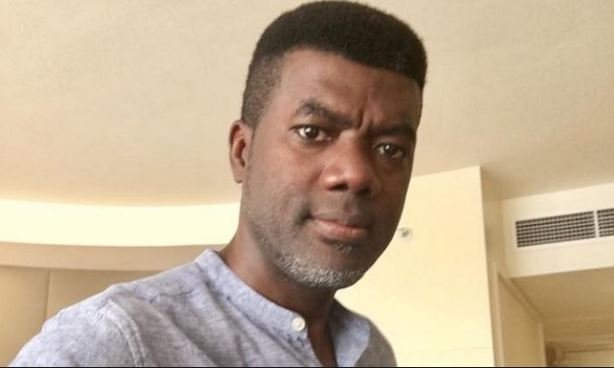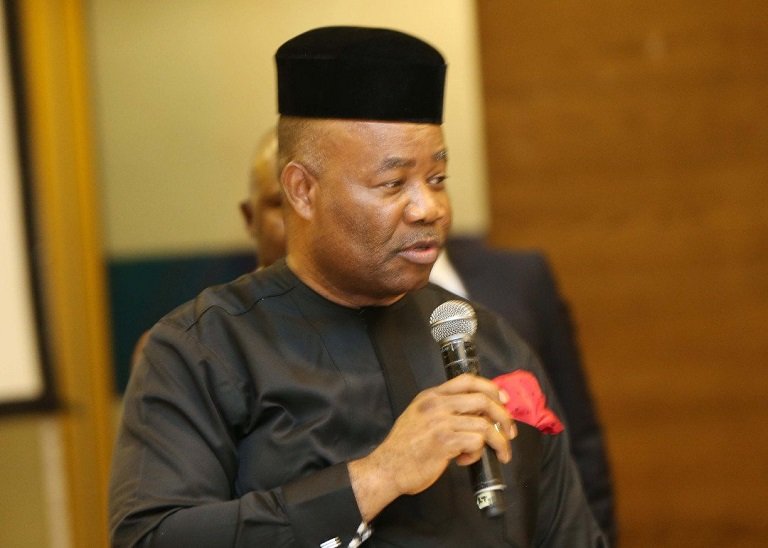National News
Trump travel ban suffers new court defeat


Mr Trump’s travel ban has led to protests
A US appeals court has upheld a decision blocking President Donald Trump’s revised “travel ban” on people from six mainly Muslim nations.
A lower court had issued the injunction on the grounds that the ban was discriminatory after a challenge by the state of Hawaii.
It is a further legal setback for the president’s efforts to get the ban he promised his supporters.
The dispute may end up being decided in the US Supreme Court.
Mr Trump’s own tweet from 5 June was cited in the judges’ ruling.
An earlier version of the travel ban, issued by Mr Trump just days after taking office, sparked confusion at airports and protests.
In the revised executive order, the 90-day ban was to apply to people from Iran, Libya, Syria, Somalia, Sudan and Yemen. It also called for a 120-day ban on all refugees, but removed references to religious minorities.
During his election campaign, Mr Trump called for a “total and complete shutdown of Muslims entering the United States”.
Reacting to the latest ruling, White House spokesman Sean Spicer defended the executive order, saying “we need every available tool at our disposal to prevent terrorists entering the United States and committing acts of bloodshed and violence”.
“We continue to be confident that the president’s executive order to protect this country is fully lawful and ultimately will be upheld by the Supreme Court,” Mr Spicer added.

Mr Trump’s travel bans have sparked protests and multiple court hearing
Trump’s travel ban – the story so far
*President Trump signed an executive order on 27 January, suddenly introducing a series of immigration measures, including a ban on travellers from seven Muslim-majority nations
*Chaotic scenes at US airports and nationwide protests followed, before the order was halted seven days later by a federal judge in Seattle
*On 9 February appeal court judges upheld the Seattle ruling
*The president signed a new executive order on 6 March, including many of the provisions of the first order but no longer including Iraq, lifting the indefinite ban on all Syrian refugees, and clarifying the situation for green card holders
*On 16 March federal judges in Hawaii and Maryland blocked the revised executive order in separate rulings, just hours before it was due to come into force
*A federal appeals court upheld the Maryland court’s ruling on 26 May
*The White House filed two emergency applications with the US Supreme Court on 2 June to seek to overturn lower court rulings
*On 12 June appeal court judges upheld the Hawaii ruling
The Ninth US Circuit Court of Appeals in San Francisco was reviewing a March ruling by a Hawaii-based federal judge that blocked parts of Mr Trump’s order.
In their ruling, the judges said that “immigration, even for the president, is not a one-person show”.
They said Mr Trump had failed to show that the entry of people from the six countries mentioned in the ban, as well as the refugees, would be detrimental to US interests.
But the judges said the government was allowed to review the vetting process for people entering the US – something the earlier Hawaii ruling had blocked.









